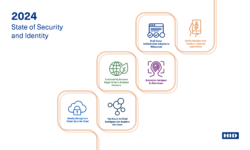Facial Recognition Tested by New York’s Transit Authority for Cashless Tolling
Metropolitan Transit Authority declined to share what company is providing the facial recognition technology, which has prompted concerns by privacy groups.

The Robert F. Kennedy Bridge at sunrise. Facial recognition cameras have been deployed at the bridge as well as the Queens-Midtown and Brooklyn-Battery tunnels. (CC BY 2.0)
NEW YORK CITY — The Metropolitan Transit Authority (MTA) is testing facial recognition technology that can identify drivers and passengers on cameras at some bridges and tunnels, the Journal News reports.
The MTA declined to reveal the name of the company testing the facial recognition solution. MTA officials also maintain that the technology is being tested only for security enhancement purposes and that the data is not being shared, according to the report.
The technology has groups such as the New York Civil Liberties Union (NYCLU) concerned about privacy and accuracy.
“These systems allow for a continuous, real-time scanning of people’s identities and location tracking,” NYCLU Technologist Daniel Schwarz told the Journal News.”It really would be detrimental to our civil rights and liberties as it would continuously know where people are moving.”
Facial recognition cameras have been deployed at Robert F. Kennedy Bridge, and the Queens-Midtown and Brooklyn-Battery tunnels, and will soon be deployed at the Throgs Neck and Bronx-Whitestone bridges, according to an MTA spokesperson.
Facial recognition is only one of the surveillance technologies being deployed in the city. The Journal News reports that license plate readers are in heavy use by the MTA and state police, while an array of “Forward Looking Infrared Radar” cameras have been installed on the Gov. Mario M. Cuomo Bridge.
The MTA declined to share what company is providing the facial recognition technology, and Director of Communications Jon Weinstein emphasized the limited nature of the deployment.
“We’re testing this emerging technology as a way to enhance security at MTA crossings but are only in the proof of concept phase and, as such, no data whatsoever is being shared with law enforcement or anyone outside of the people involved with the pilot,” Weinstein said. “Our priority is balancing public safety with civil liberties — which are equally paramount.”
State Assembly member Tom Abinanti has submitted legislation to bar the storage of data gathered in public spaces by government agencies, according to the report.
“The government should not be spying on its citizens,” Abinanti said. “If you want to use it to track gunrunners, then get a court order. There needs to be some accountability.”
He also expresses concern that purposes and procedures have not been established for the technology’s use.
“Are they going to use facial recognition for speeding tickets?” Abinanti asked. “If two people look alike and the wrong one gets the ticket what do you do?”
The facial recognition trial is expected to include all seven NYC toll bridges, and the New York Post reported in July that the system is attempting to match acquired images against a database of wanted criminals, parole violators, and suspects.
If you enjoyed this article and want to receive more valuable industry content like this, click here to sign up for our FREE digital newsletters!

Security Is Our Business, Too
For professionals who recommend, buy and install all types of electronic security equipment, a free subscription to Commercial Integrator + Security Sales & Integration is like having a consultant on call. You’ll find an ideal balance of technology and business coverage, with installation tips and techniques for products and updates on how to add to your bottom line.
A FREE subscription to the top resource for security and integration industry will prove to be invaluable.













